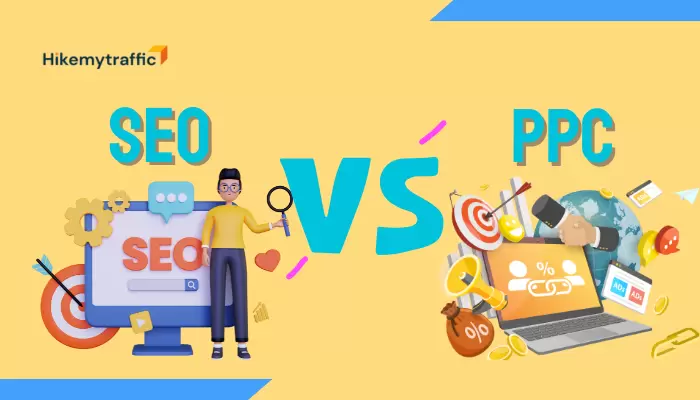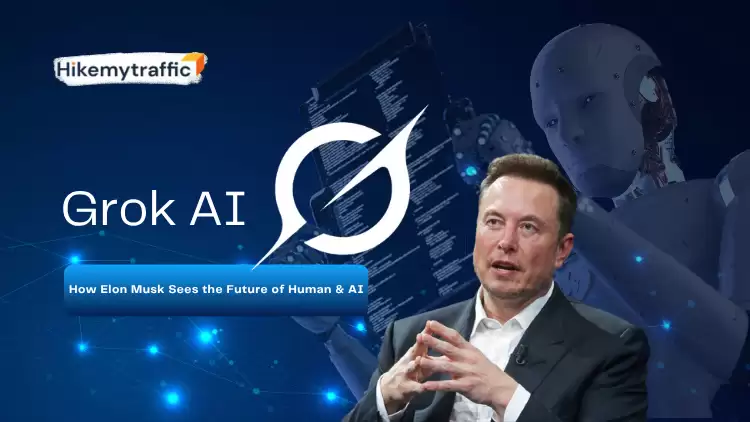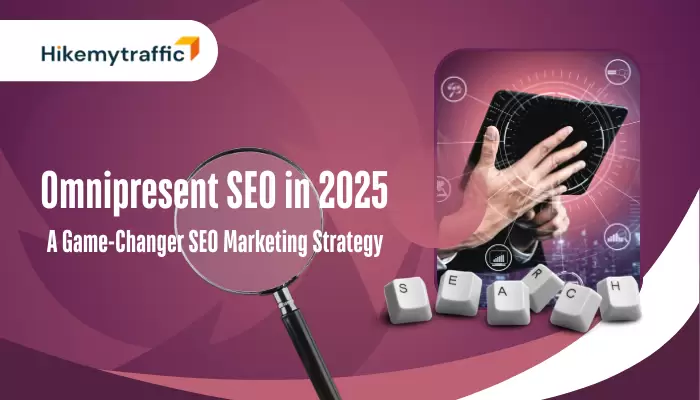SEO vs PPC- Which Strategy Is Right for Your Business?
When it comes to getting your business noticed online, two of the most powerful digital marketing strategies are SEO and PPC. You might have heard these terms before, but what do they mean? And which one is better for your business?
In this blog, we’ll take a deep dive into SEO vs PPC, how they work, their pros and cons, and how you can use both together for success. Whether you are a startup owner, a digital marketer, or a business looking to grow, this guide will help you make the right choice.
What is SEO?
SEO stands for Search Engine Optimization. It’s a process of improving your website so that it appears higher in search engine results (like Google or Bing) when people search for things related to your business.Let’s say you run a bakery in New York. If someone searches for “best bakery in New York,” SEO helps your website show up on the first page of Google results.This happens through optimizing various parts of your website, like content, keywords, page speed, mobile-friendliness, and getting links from other trusted websites.
What is PPC?
PPC stands for Pay-Per-Click. It’s a type of online advertising where you pay every time someone clicks on your ad. These ads usually appear at the top or bottom of search engine results or on websites and social media platforms.For example, if you use Google Ads to target the keyword “birthday cakes in New York,” your ad can appear at the top of Google’s search results. But each time someone clicks your ad, you pay a small fee.
SEO vs PPC: The Key Differences
Both SEO and PPC are parts of digital marketing services, but they work very differently.SEO focuses on organic (unpaid) traffic. You create helpful content and optimize your site, and over time, Google starts showing your website to more people.PPC is paid traffic. You pay platforms like Google Ads or Facebook Ads to show your message directly to users. It gives you instant visibility, but at a cost.Now, let’s break this comparison down into more detail.
Cost: SEO vs PPC
One of the biggest differences between SEO vs PPC is the cost structure.SEO is more of a long-term investment. You don’t pay for clicks, but you do spend money on creating content, doing technical fixes, and sometimes hiring an SEO expert or agency.PPC gives you immediate traffic, but you pay for every single click. Some competitive keywords can cost several dollars, or even more, per click.So if your budget is tight and you’re thinking long-term, SEO might be more cost-effective. But if you need results fast and can afford it, PPC is a quick way to get traffic.
Speed: How Fast Can You Get Results?
This is where PPC beats SEO. With PPC, you can launch a campaign today and start getting clicks and leads within hours. With SEO, it takes time. Sometimes it can take 3 to 6 months (or more) to see real traffic coming in from search engines. SEO is like farming, planting seeds, and waiting for them to grow.So if you're launching a product or running a time-limited campaign, PPC gives you that instant push. But if you’re playing the long game, SEO is worth the wait.
Sustainability: Long-Term Benefits
One major advantage of SEO is that it builds long-term value. Once your website ranks high for important keywords, you can enjoy free traffic for months or even years.With PPC, once you stop paying, your traffic stops. It’s like renting a house, you’re paying for it every month. SEO is like owning a house; you put in more effort up front, but you benefit for longer.That’s why many businesses invest in SEO and PPC marketing together, with quick wins from PPC and long-term growth from SEO.
Trust and Credibility
When it comes to trust and credibility, SEO has a clear edge over PPC in the eyes of most users. This is because organic search results are earned, not paid for, and users often view them as more reliable and authoritative. When a website ranks high in search engine results naturally, it sends a signal that the content is valuable, relevant, and trustworthy.On the other hand, PPC ads are marked as “sponsored” or “ad,” which can make some users skeptical. While PPC ads are effective in grabbing attention and driving traffic, they don't always convey the same level of credibility that a top-ranking organic result does.
That said, SEO and PPC marketing combined can build even stronger trust. For example, when users see your website appear both as a paid ad and in the organic results, it reinforces your brand's authority and increases the chances of a click. This dual visibility can lead to higher brand recall, deeper trust, and better conversion rates.
A professional PPC and SEO agency understands this balance and ensures that your brand maintains both credibility through SEO and visibility through PPC. When implemented properly, both methods contribute to a trustworthy online presence and a better user experience, core goals of all digital marketing services.
Targeting Options
When comparing SEO vs PPC for targeting options, PPC provides more precision and flexibility, while SEO offers broader, long-term reach.PPC (Pay-Per-Click) gives advertisers advanced control over who sees their ads. With platforms like Google Ads, you can target based on:This level of control makes PPC ideal for reaching a well-defined audience instantly. That’s why many businesses turn to a PPC and SEO agency to launch targeted campaigns for quick returns.In contrast, SEO (Search Engine Optimization) targets users more passively by aligning your content with the terms and topics people are searching for online. You can optimize your website for:
While SEO doesn't offer the immediate, granular control that PPC does, it excels in attracting consistent, relevant traffic over time. SEO builds authority and reaches people at every stage of the buyer journey, especially when supported by all digital marketing services like content marketing and social media.
In an ideal SEO and PPC marketing strategy, both targeting methods are used together: PPC for fast, precise reach, and SEO for broad, long-term visibility.Conversion Rate Comparison
The conversion rate (how many people take action like filling a form or buying something) can vary based on the industry. Sometimes PPC brings better conversions because it’s highly targeted and leads to specific landing pages.
However, SEO traffic can also convert well, especially if people are searching for exactly what you offer. So it’s not always about one being better than the other. It depends on your content, offer, and audience.
SEO and PPC- Better Together
Here’s the secret many top marketers know: SEO and PPC are not enemies. They work best when used together.Imagine this: You run a PPC campaign to get fast traffic, while also working on SEO to build your organic presence. Over time, your SEO picks up, and you reduce your ad spend or shift it to new products.This combined approach is what many successful businesses and PPC and SEO agencies recommend. It gives you both short-term gains and long-term stability.
Final Thoughts
The choice between SEO vs PPC is not about which is better, it’s about which is better for you, right now. Both have strengths and weaknesses. PPC is fast and powerful, but can be expensive. SEO takes time, but it can bring long-lasting value.Smart businesses don’t pick one over the other, they use both. Whether you do it in-house or hire a PPC and SEO agency, combining SEO and PPC is the key to dominating search results and growing online.
And when you include all digital marketing services into the mix, your brand becomes unstoppable. From content and social media to email and ads, everything works together to attract, engage, and convert customers.
So, don’t limit yourself. Use the power of SEO and PPC to grow your business in today’s digital world.
Have a Question?
Let's Have a TalkFAQs
Here are some of the most frequently asked questions-
SEO focuses on getting free (organic) traffic, while PPC involves paying for ads to appear in search engine results.
It depends on your goals. PPC gives quick traffic; SEO is better for long-term, cost-effective results.
Yes! SEO and PPC marketing work best when combined, offering immediate traffic and long-term visibility.
When comparing SEO vs PPC in the long term, SEO often comes out ahead in terms of sustainability and cost-effectiveness. While PPC requires a continuous budget to maintain visibility, SEO efforts can continue to bring in traffic for months or even years without additional cost. SEO also builds trust, as users tend to click on organic results more often than ads.
A professional PPC and SEO agency offers both short-term and long-term marketing solutions. They handle keyword research, campaign management, content optimization, bid strategies, and performance tracking.
SEO offers multiple benefits over PPC. First, it is cost-effective in the long term because you’re not paying per click. Second, it builds credibility and trust among users who prefer organic results.
Relying only on PPC has several risks. Once you stop funding your PPC campaigns, your visibility and traffic vanish instantly. It can also become costly, especially in competitive industries where keyword bids are high.
SEO typically takes 3 to 6 months to show noticeable improvements in rankings and traffic.
Share:
Explore Related Blog
Let’s Design Your New Website
Do you want to have a website that stands out and impresses your clients? Then we are ready to help! Click the button below to contact us and discuss your ideas.







Goutam Singh
Hi, I Am Goutam Singh, Content Writer At HikeMyTraffic.com And Founder Of BizAdda360. SEO Expert And Web Developer By Passion.